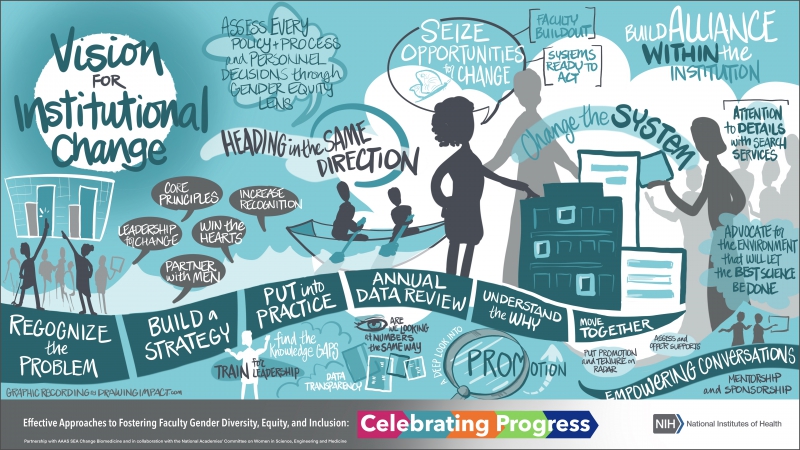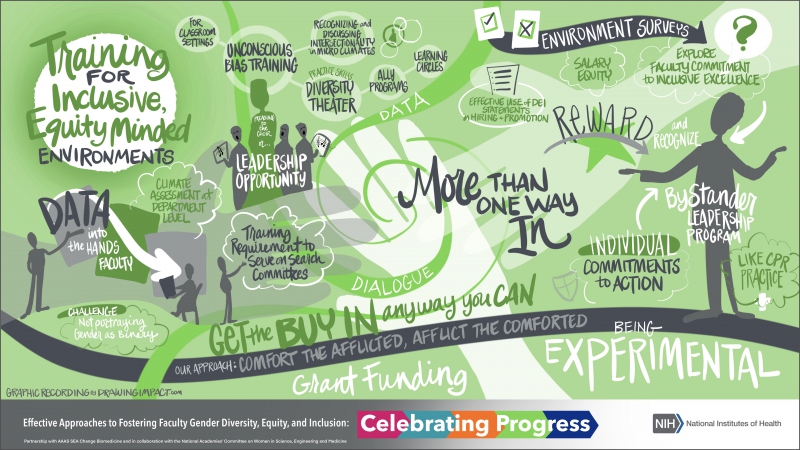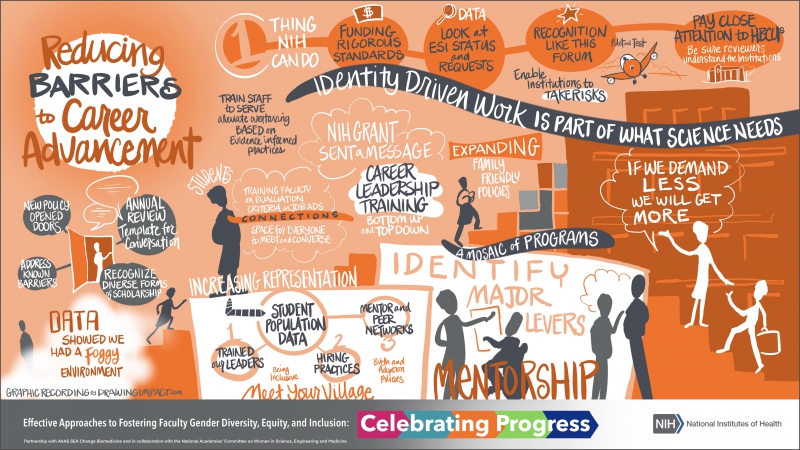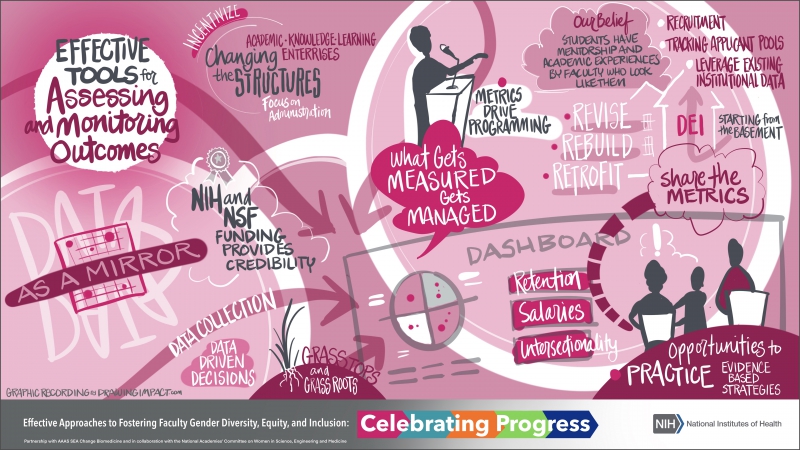Women continue to be underrepresented at nearly every institution of higher education in the United States in the fields of biomedical, behavioral sciences, and engineering. This is particularly true among mid- to senior-level faculty ranks. NIH has taken steps to address this issue through the creation of the NIH Prize for Enhancing Faculty Gender Diversity in Biomedical and Behavioral Science.
The NIH Prize for Enhancing Faculty Gender Diversity in Biomedical and Behavioral Science recognizes institutions whose biomedical and behavioral science departments, centers, or divisions have achieved sustained improvement in gender diversity. Understanding that there is no “one-size-fits-all” solution to enhancing diversity in academia and that ideas based on evidence are necessary to achieve systemic change, this prize acknowledges and recognizes transformative approaches, systems, projects, programs, and processes that have successfully enhanced and sustained gender diversity within an institution. All prize past and future recipients and honorable mentions substantially contribute to systemic change aimed at addressing gender diversity and equity issues among faculty members within their institutions' biomedical and behavioral science departments.
2021 Prize Competition Forum Recap
ORWH hosted a forum titled "Effective Approaches to Fostering Faculty Gender Diversity, Equity, and Inclusion: Celebrating Progress," on October 5, 2021, from 12:00–5:00 p.m., to recognize the winning institutions and honorable mentions that were recently awarded the NIH Prize for Enhancing Faculty Gender Diversity in Biomedical and Behavioral Science. This event was in partnership with the American Association for the Advancement of Science’s (AAAS) STEMM Equity Achievement (SEA) Change initiative and in collaboration with the National Academies of Sciences, Engineering, and Medicine’s Committee on Women in Science, Engineering, and Medicine.
The forum presented the winners' effective, evidence-based practices and featured four panels exploring challenges and discussing ways to improve the existing career paradigm for many women in biomedical and behavioral science. The practices and strategies presented at this forum will help foster supportive and inclusive environments at academic and research institutions in which women faculty members can further their careers and remove barriers to implementing transformative change. There were discussions about the implementation of interventions, outcomes, lessons learned, and future goals.
To learn more about the 2021 Prize Competition Forum, view the Executive Summary.
Forum Panels
Vision for Institutional Change
- Panelists explored how their institutions' vision for change is informed by a focus on advancing faculty gender diversity, equity, and inclusion. Panelists also discussed how their vision inspires and guides institutional change. See graphic notes below of the panel discussion.
Training for Inclusive, Equity-Minded Environments
- Panelists shared how their institutions use different approaches to evidence-based training that aims to create more inclusive, equity-minded environments. See graphic notes below of the panel discussion.
Reducing Barriers to Career Advancement
- Panelists discussed institution or programmatic-level changes that reduce or remove barriers to the career advancement of women. Examples included changes to the policies and procedures for recruiting, hiring, promotion, and tenure. See graphic notes below of the panel discussion.
Effective Tools for Assessing and Monitoring Outcomes
- Panelists shared how their institutions use tools—such as dashboards, surveys, and program evaluations—to inform their approaches and to assess and effectively monitor outcomes. See graphic notes below of the panel discussion.
Speakers for the event included Francis Collins, M.D., Ph.D., former NIH Director; Sudip Parikh, Ph.D., the CEO of the American Association for the Advancement of Science (AAAS); and Shirley Malcom, Ph.D., the Senior Advisor to the CEO of AAAS and Director of the AAAS SEA Change program.





